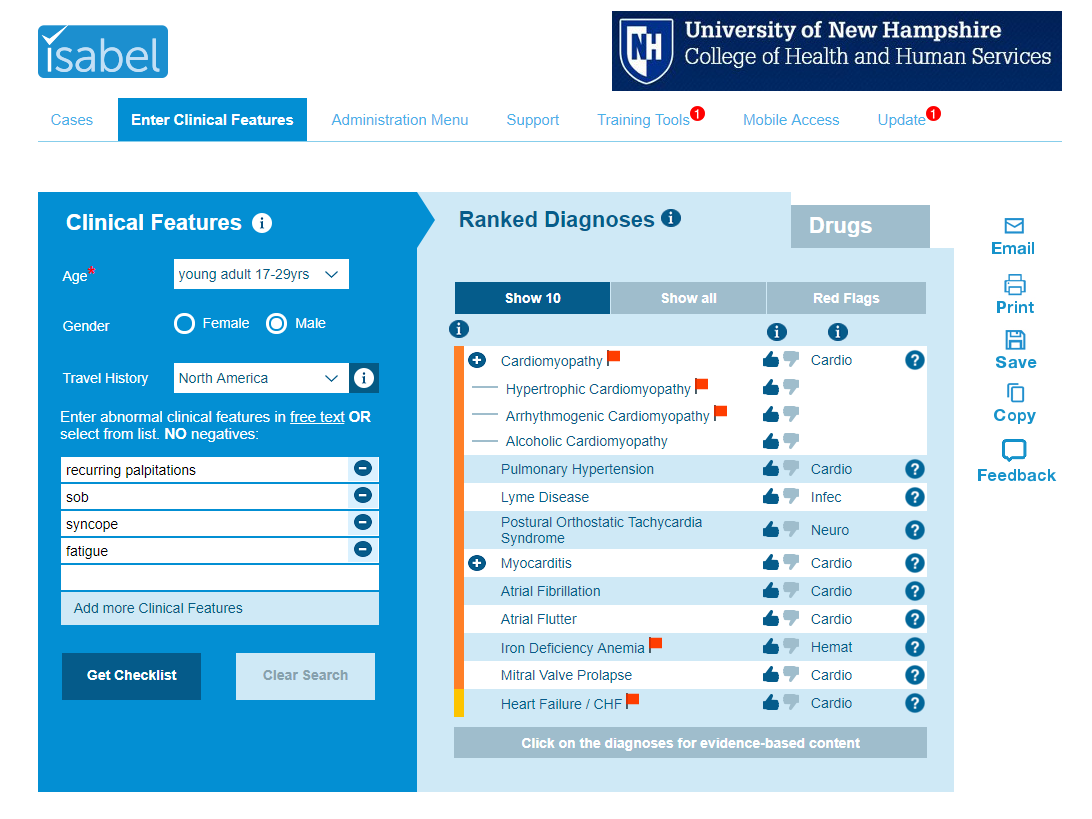Client Success Stories
University of New Hampshire NP Program
The University of New Hampshire (UNH) Department of Nursing offers several graduate degrees and programs that provide the knowledge and skills needed by nursing professionals in today's healthcare environment. With four advanced practice nursing tracks as well as a direct entry master's in nursing track, these programs are designed to be completed in three to four semesters of full-time study including one summer.

UNH Nursing students learn about relationship-based care, reflective thinking and clinical decision making while following guidelines for developing safe, quality clinical skills. Nursing students learn from faculty who serve as facilitators and mentors within a supportive, scholarly environment, and as graduates become part of the workforce that will help shape the future of healthcare.
Diagnostic Challenge
UNH has focused attention on developing the clinical reasoning skills of students. These skills are not only essential for practice but are uniquely difficult to assess. Developing critical thinking skills for the complex problem of diagnostic reasoning and pattern recognition is challenging yet is critical to the development of nursing students to prepare them for practice. This challenge is further complicated by inherent bias, like premature closure, confirmation bias, etc. associated with diagnosis decision making and can often lead to diagnosis error.
Providing tools and support to enhance those critical thinking skills can be a valuable component in their education.

Incorporating Digital Tools to Assist
UNH nursing faculty have integrated Isabel into our NP program curriculum over the past few years. We use a case-based learning approach where our students apply their knowledge to real-world scenarios, promoting higher levels of learning. Students are introduced to Isabel in their health assessment course where they learn how and when to use Isabel. In our clinical decision-making courses, students work in small groups on case studies and develop problem lists into illness scripts using Isabel in the process to broaden their differentials. Students also use Isabel in their clinical practicums when they are not certain of the diagnosis or want to make sure they rule out red flag diseases.

Results and Conclusions
Isabel is an affordable clinical reasoning support system to help students generate a good differential. Faculty believe that using Isabel and illness scripts have improved students’ accuracy and metacognition. Isabel’s interface is well designed and intuitive. A testament to its value is that our students report a desire to continue to use Isabel in their clinical practice after graduation.






